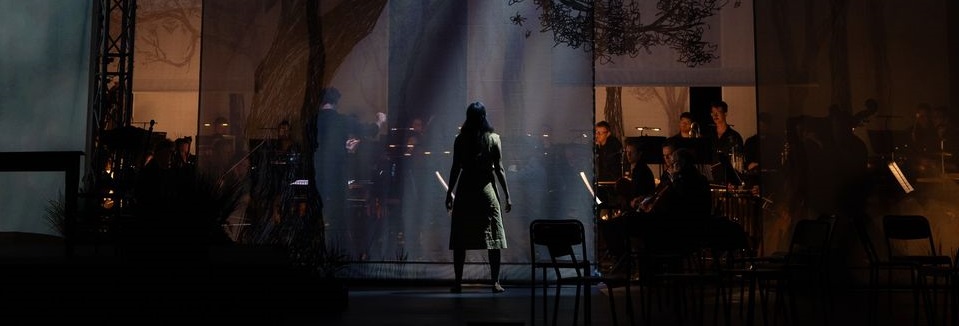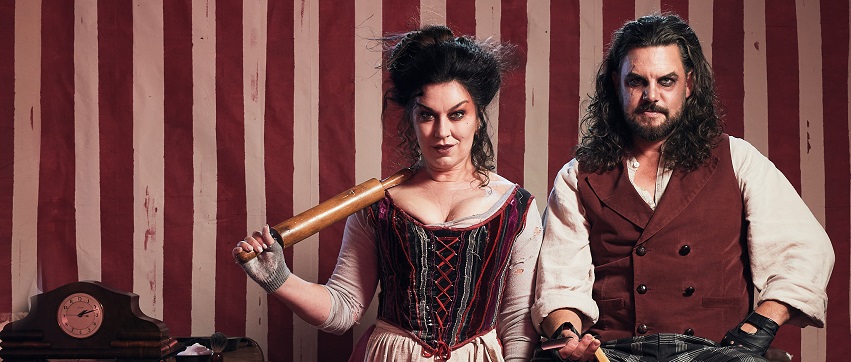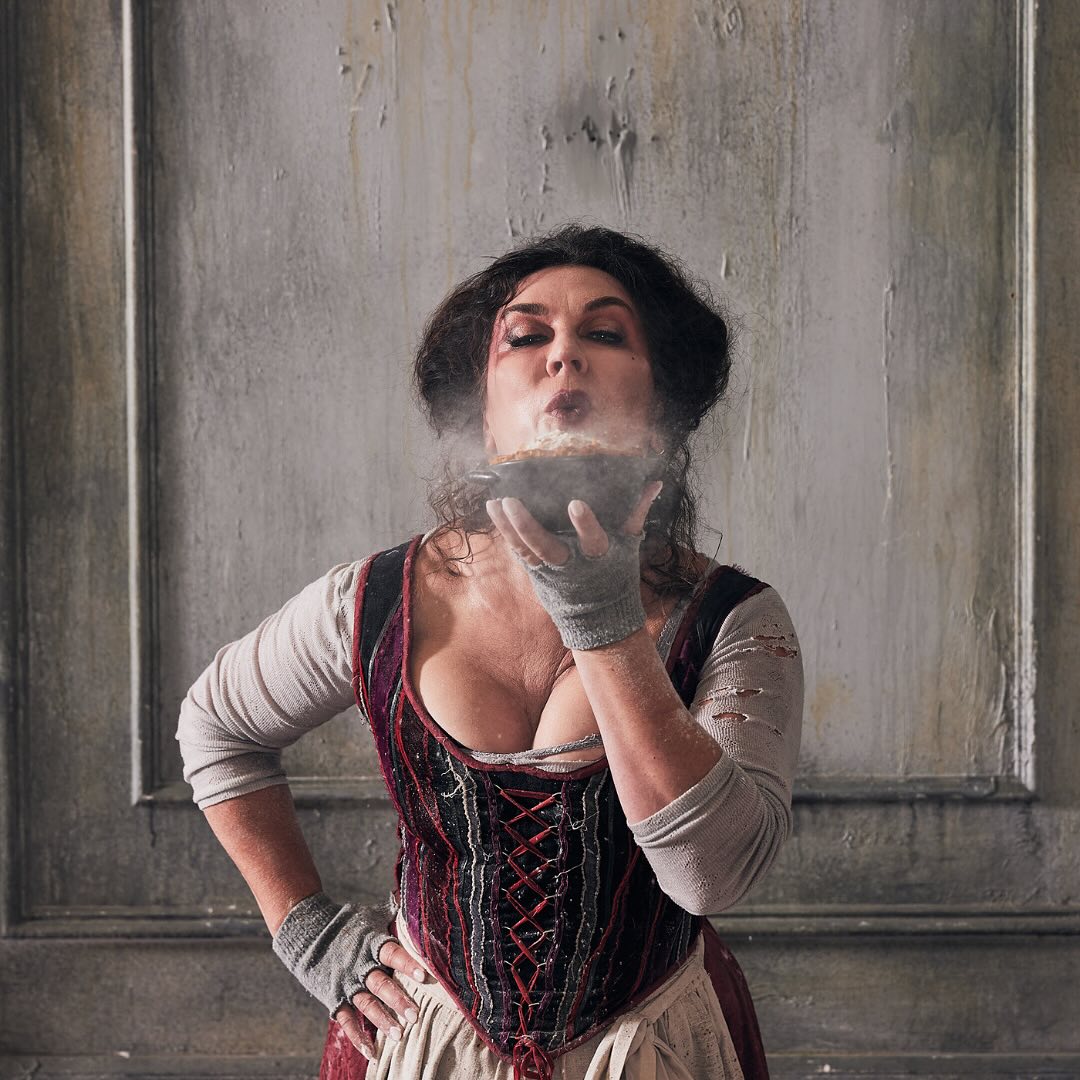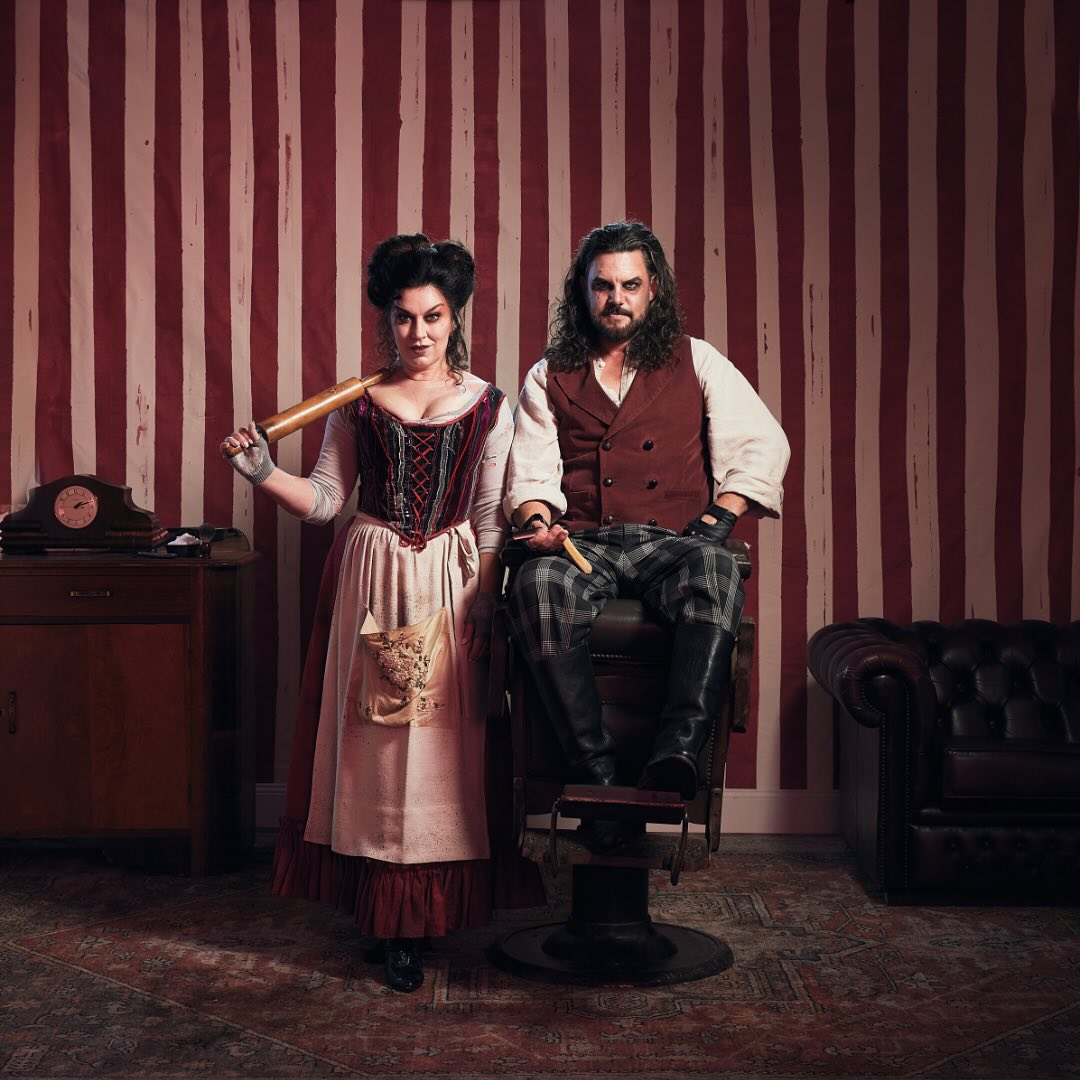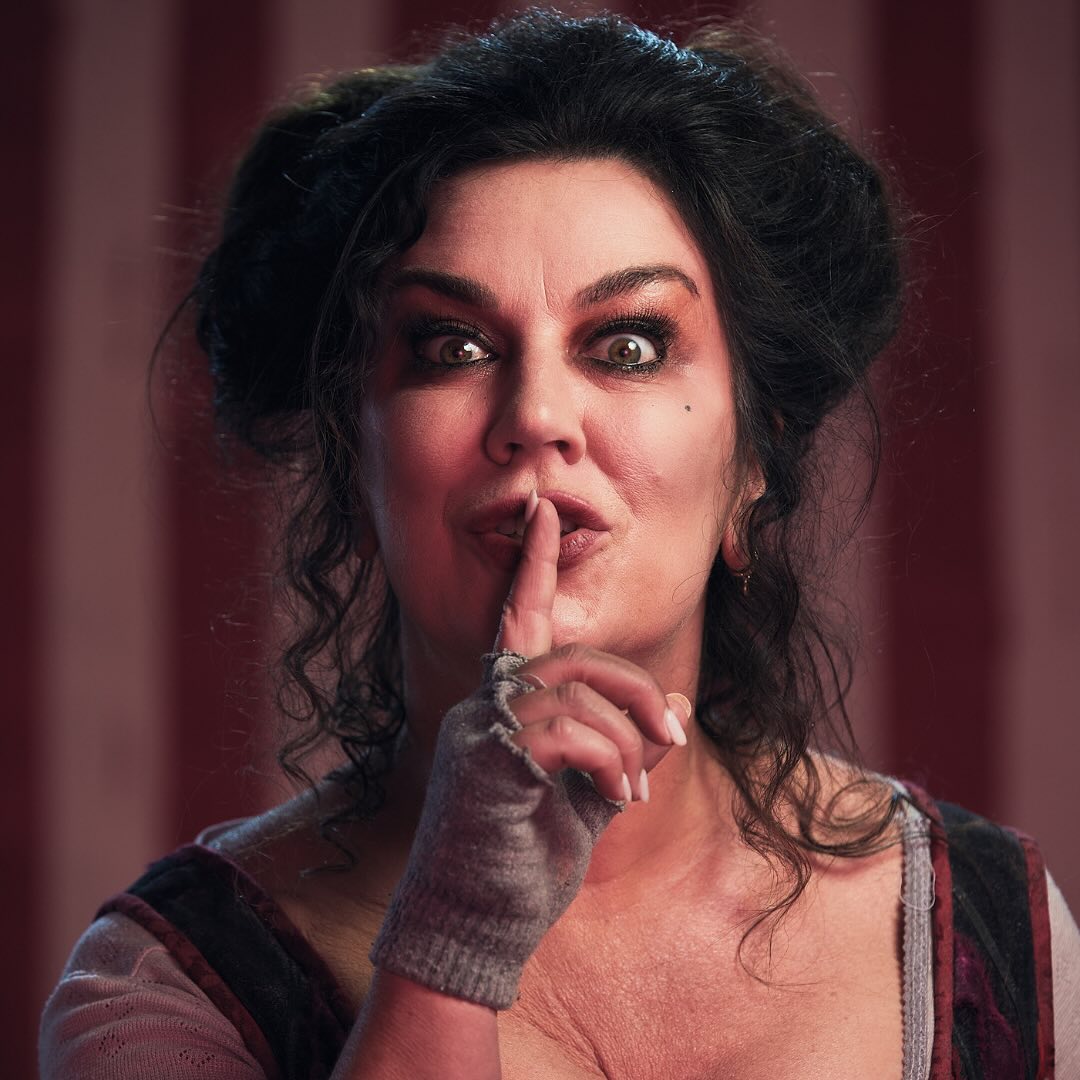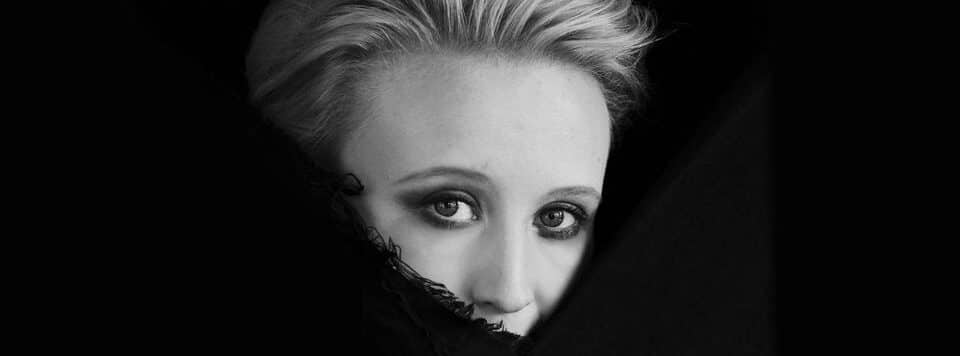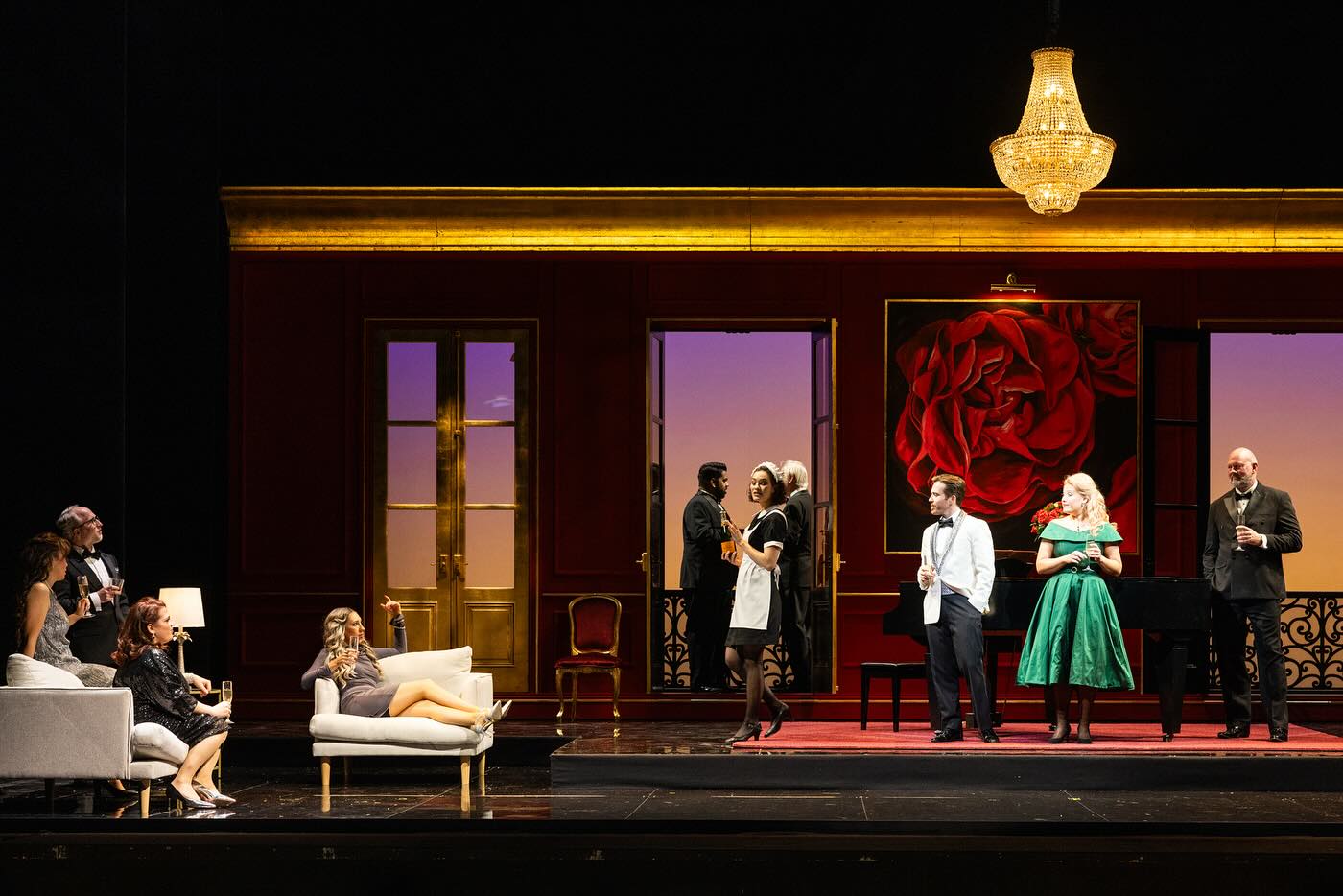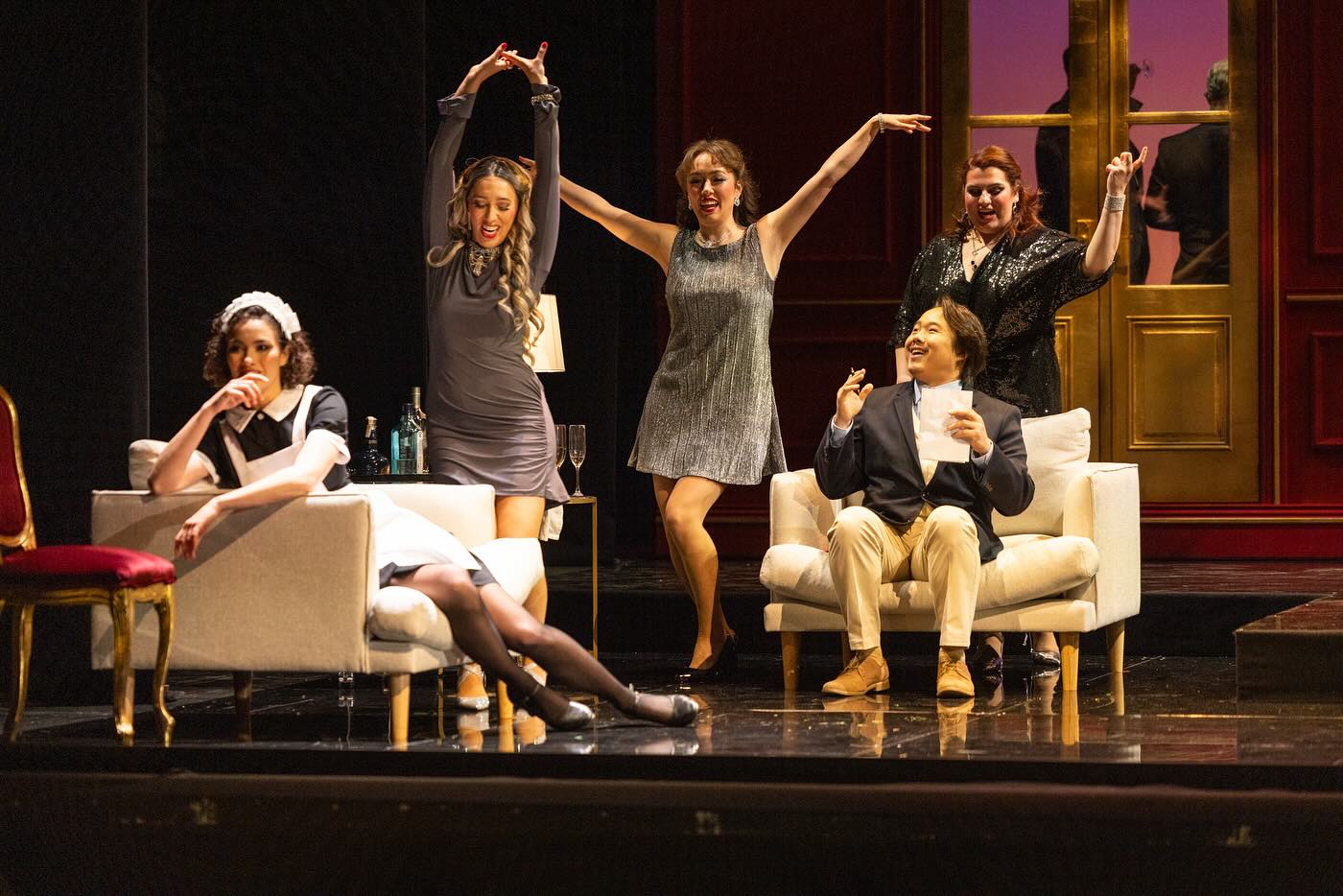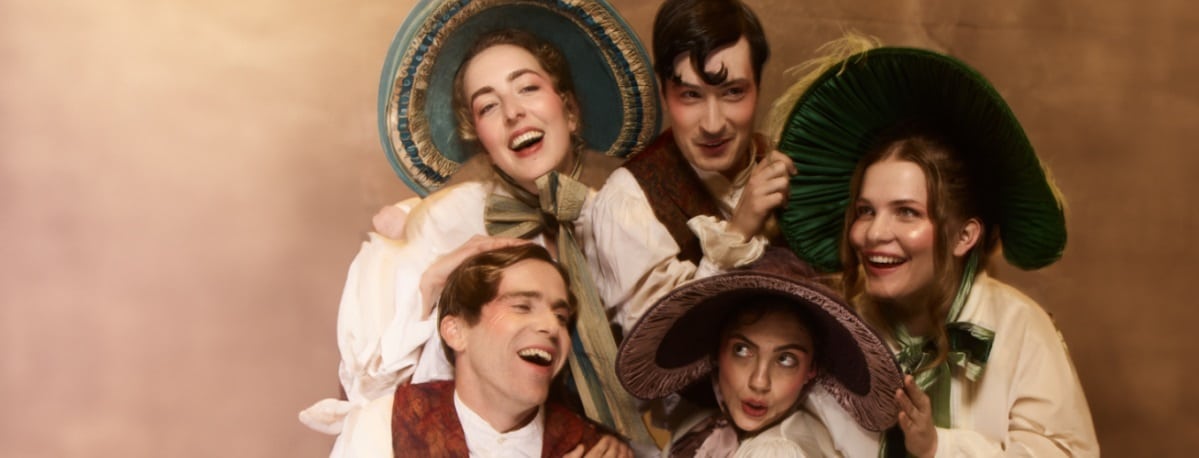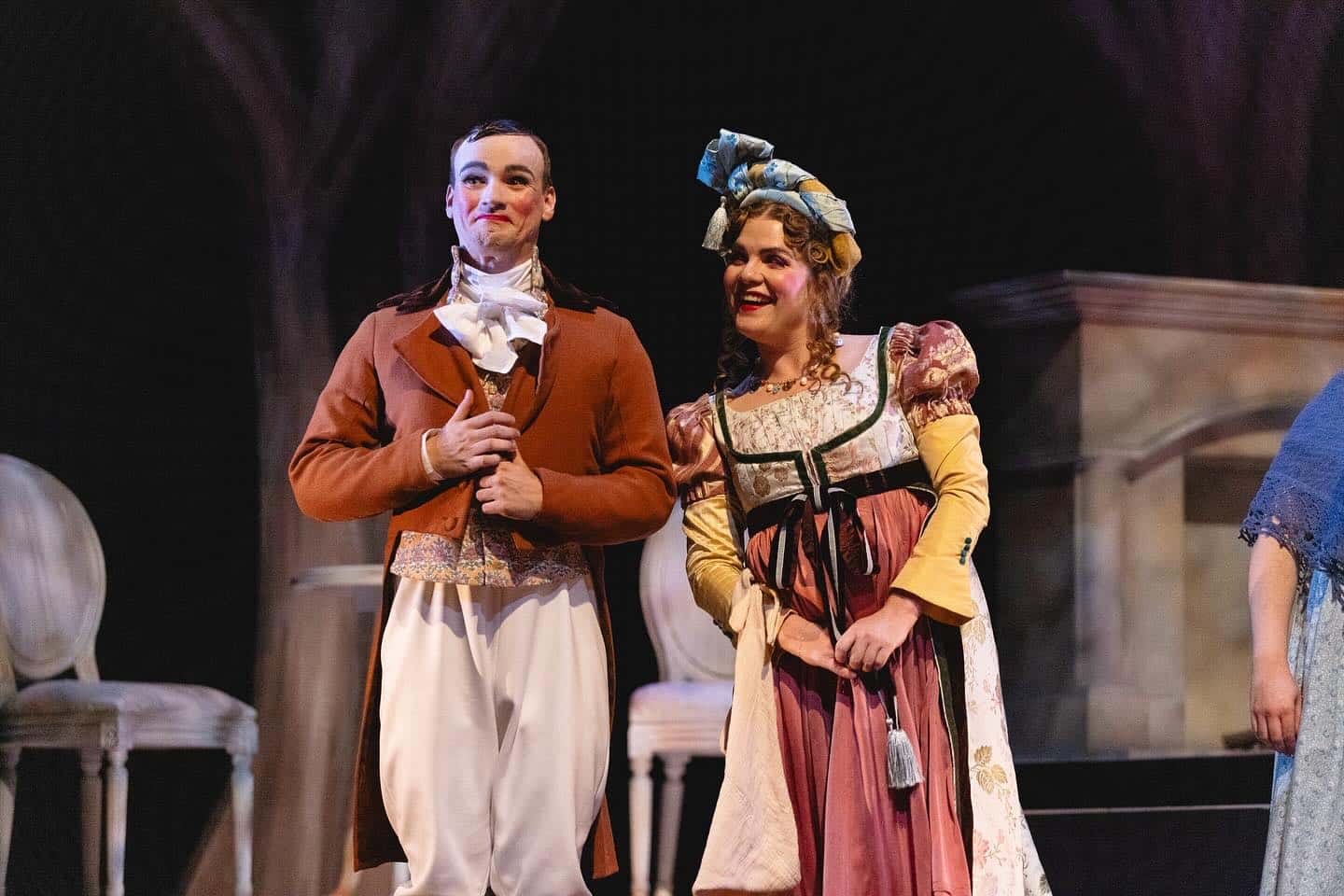A beautifully fluid and enchanting story is what first comes to my mind in sitting to write this review on the new EUCALYPTUS: THE OPERA
I must mention firstly that I am new to ‘opera’ productions this being my first one other than ‘Phantom’, so in having love for all things in the Arts, I quickly put my hand up to go and experience one of the oldest art forms on stage. It is a work in music of course, its true meaning, however I am quick to learn it is not just music and song that encompasses this magic, it is the combination of visual art, drama and in today’s age lighting and a set kept simple yet very effective.
Dreamy ‘Ellen’ played by the exceptional Desiree Frahn, whom I could listen to sing all day, is the daughter of strict parent ‘Holland’ played by the well-versed talents of Simon Meadows with an incredible supporting cast. Both of these characters the centre of the bestseller Australian novel, ‘Eucalyptus’ by Murray Bail, are brought to life at the beautiful Palais Theatre which could not be a more suitable venue coming from the era of yesteryear in which the story takes place. A story of a father only wanting the best husband for his daughter, but in deciding this ‘for her’ will he take it a touch too far?
When news gets out around the world that Holland will marry off his daughter to the man who can ‘name’ all his beloved trees planted in memory of Ellen’s deceased mother, and also as a barrier to help keep his daughter safe, the haven perhaps becomes more like a prison of leafy wonder depicted on stunning fabric panels before the audience. No matter which way we look, the branches all line up perfectly and with the talent in front of us, we never actually notice the main scene board changing from a train station to a town to a house and more, but it does and when Ellen stands in front of an expected storm I swear the theatre now also smells of rain; my imagination in being drawn into the story or real, I’m still not sure.
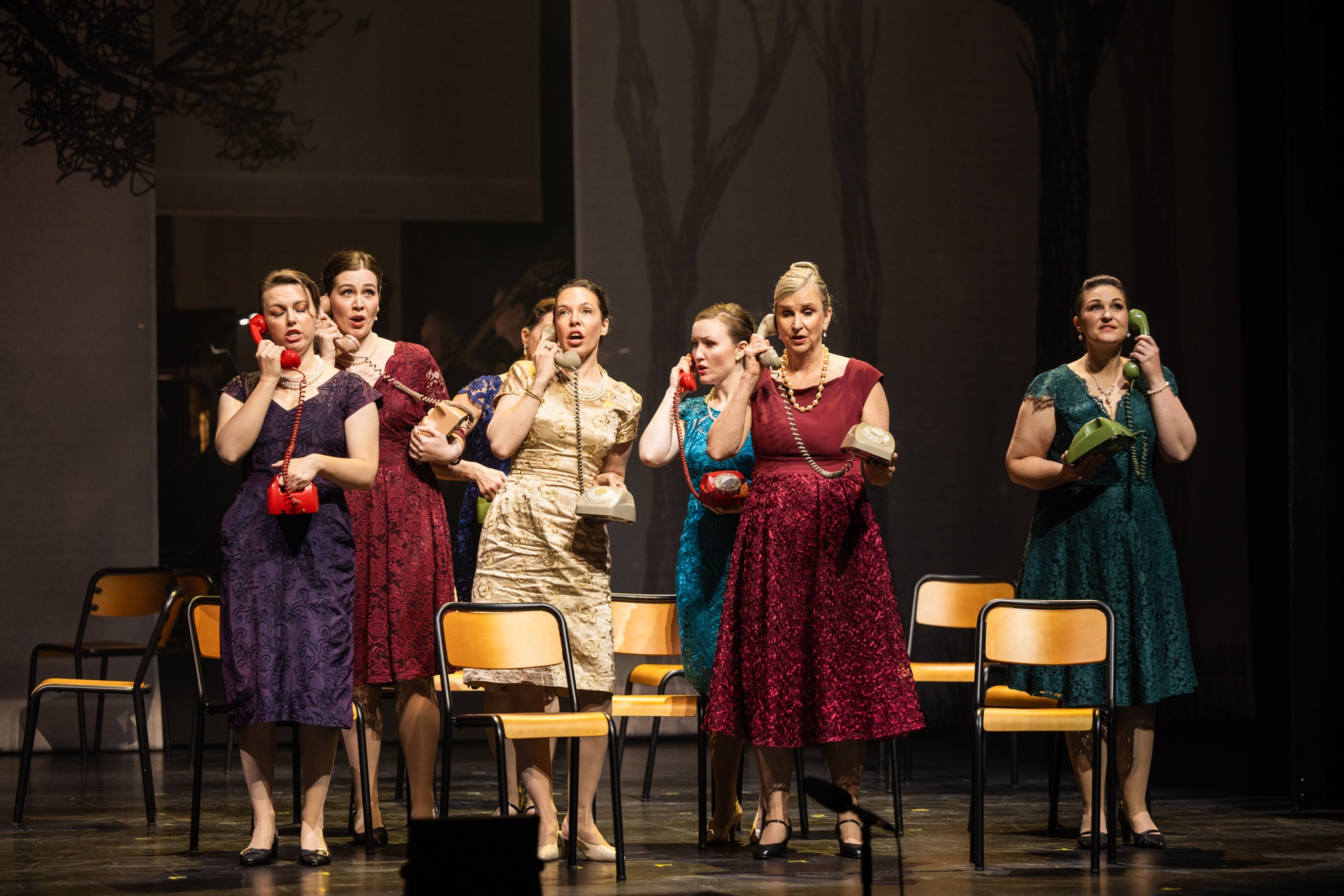
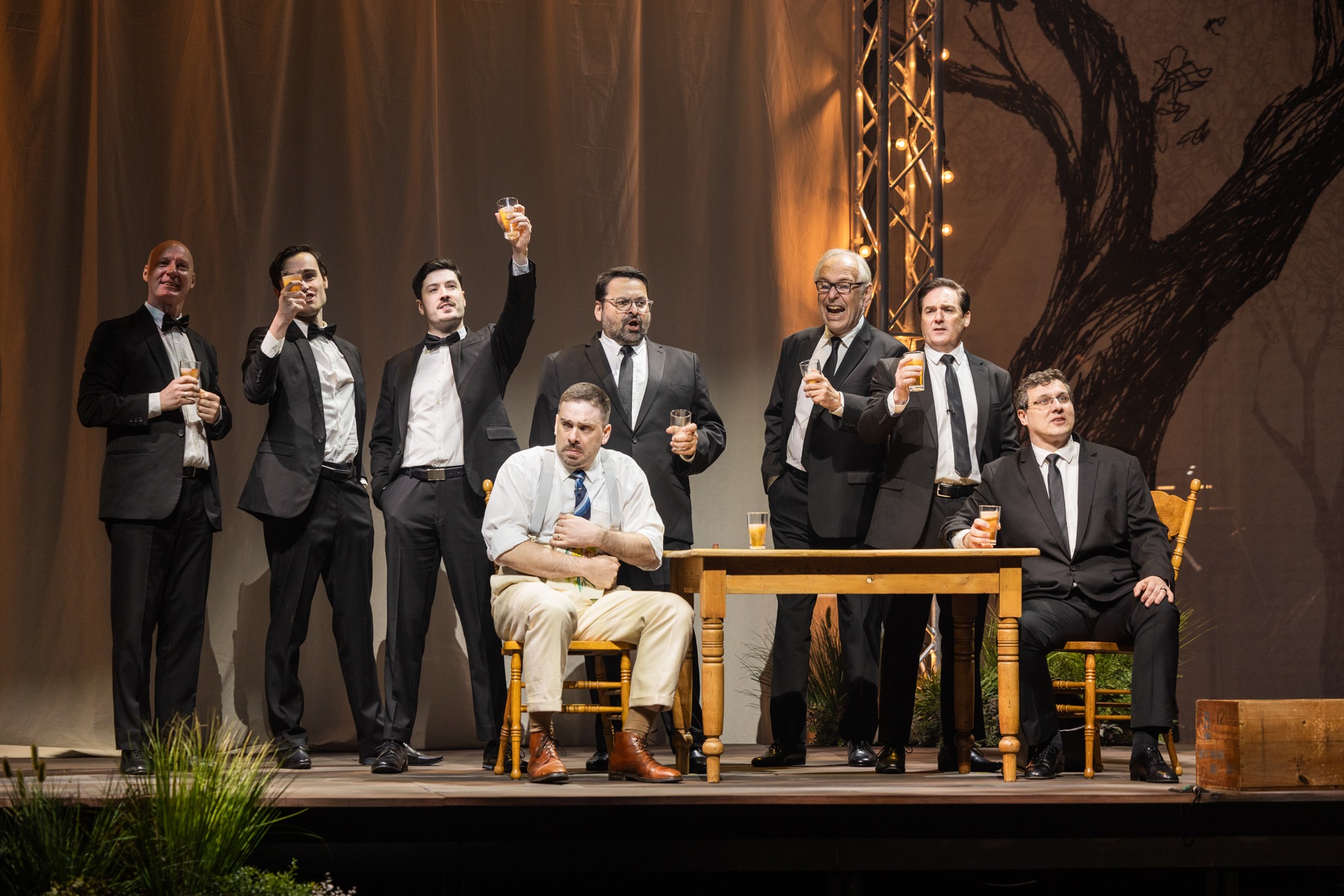
A couple of favourites in the cast are surely the ‘Sprunt Sisters’ played by Natalie Jones and Dimity Shepherd, they are quirky fun, totally believable and bring the giggles!
‘Mr Cave’ played by Samuel Dundas, the suitor from far away looking to name all those trees has to have a magnificent memory to sing of so many ‘botanical’ titles, and, ‘The Stranger’ played by Michael Petruccelli for whom Ellen is transfixed on as her partner to be, instead of her father’s choice, is every bit the traditional rugged Heart-of-Australia bushman, Akubra hat and swag carry in tow.
The opera is sung in English as it is totally an Australian piece. Where else would you hear words such as ‘blokes’ and ‘boiling a billy’ sung in an Opera? The words are also scripted on side screens so you won’t lose track of the story at all. You can read along if you need to without losing focus on anything that’s also happening on the stage.
I’m expecting toward the end that opera is not unlike the ballet and that tragedy may be ahead, but could I be wrong? You will need to go and see for yourself if it’s the Stranger who will sing his way with stories into Ellen’s heart or the clever Mr Cave…
As a first time visit to an opera, I recommend EUCALYPTUS: THE OPERA highly. I love anything that takes us back into times gone by and the fact that it is Australian makes the production extra special. Full of powerful emotion heard from the music in each mood and powerful voices to accompany that are everything from soft and featherlike to daunting and explosively expressive, the experience is something I will surely never forget.
Thank you to the wonderful creative team, the amazing orchestra and talented cast for making this a very memorable outing I shall always be grateful for in my first experience of live opera.
Playing at The Palais in St Kilda 16-19 October 2024. I recommend paying for parking near the theatre and booking premium seats, which is what we had and were unbeatable value.
Ticket link: https://www.palaistheatre.com.au/all-events/eucalyptus-tickets-ae1448575
